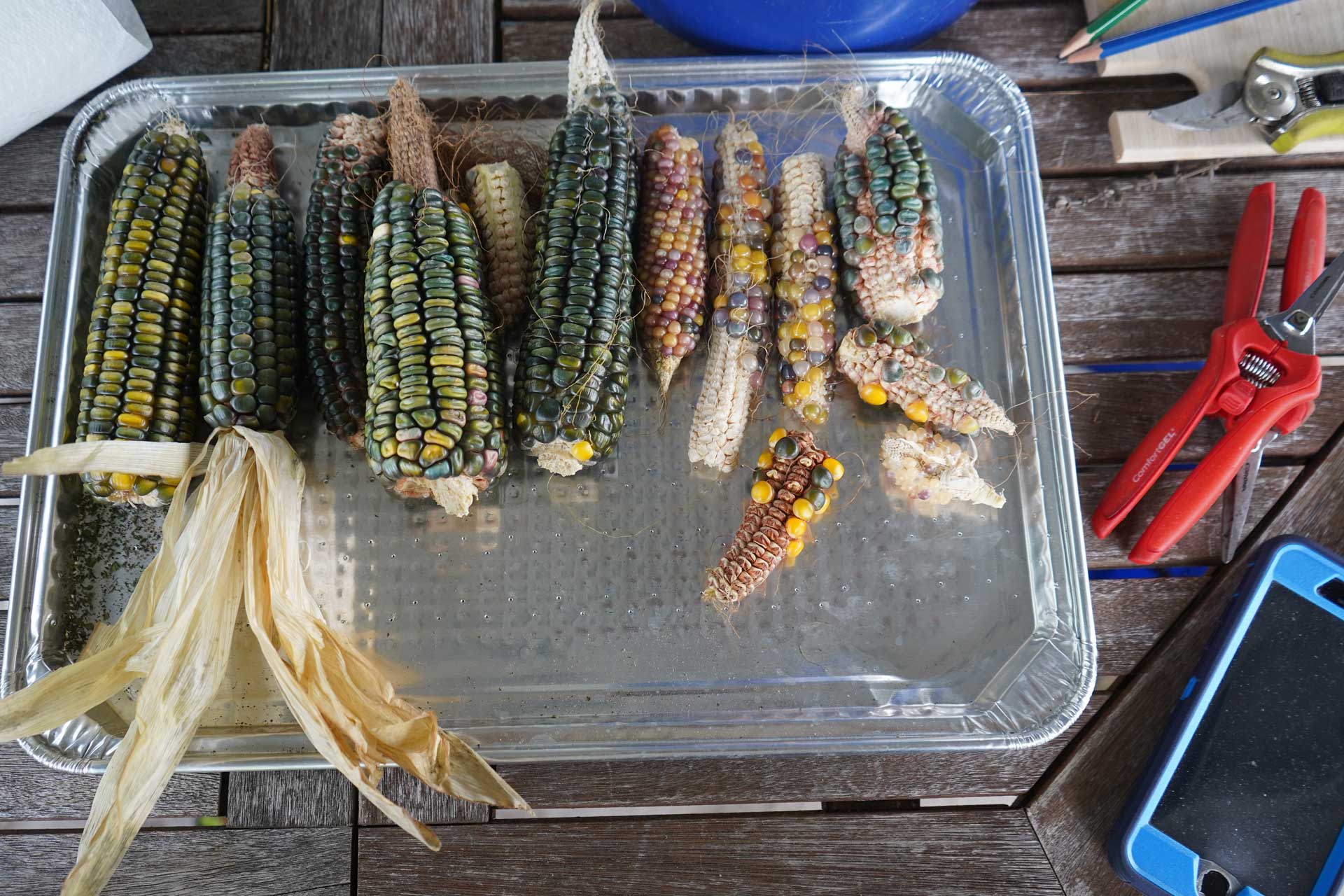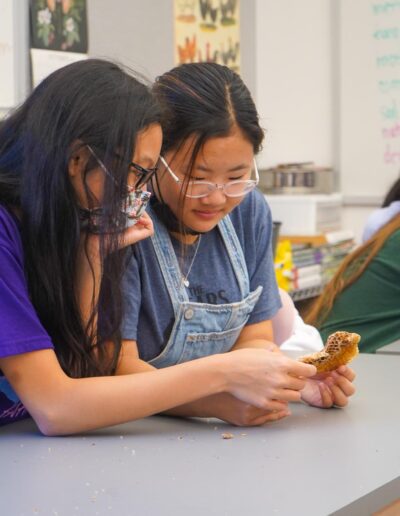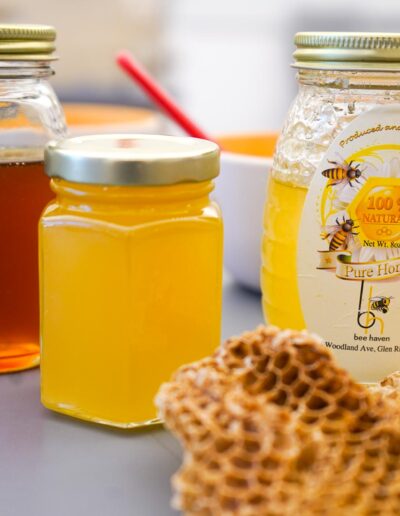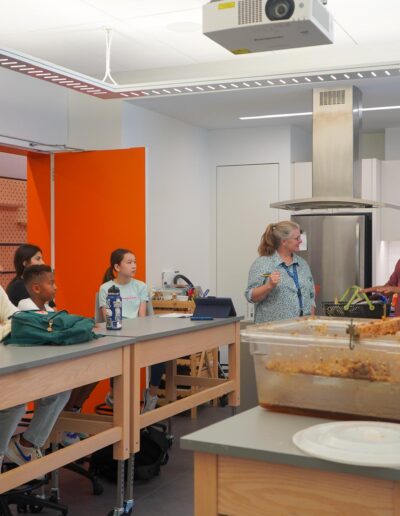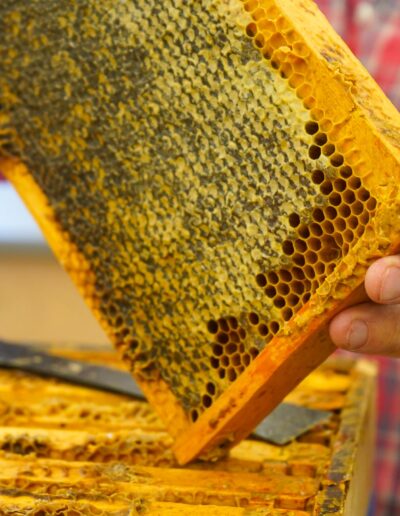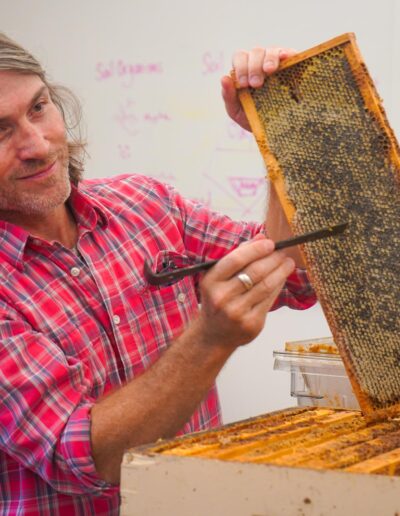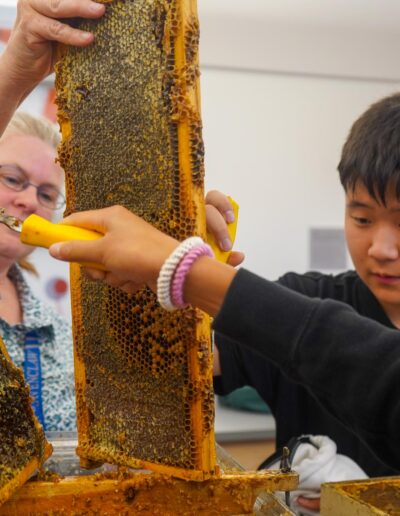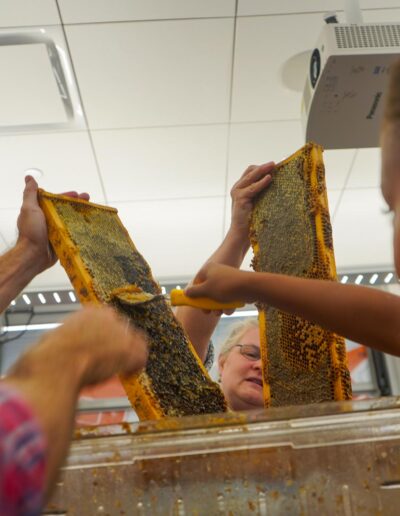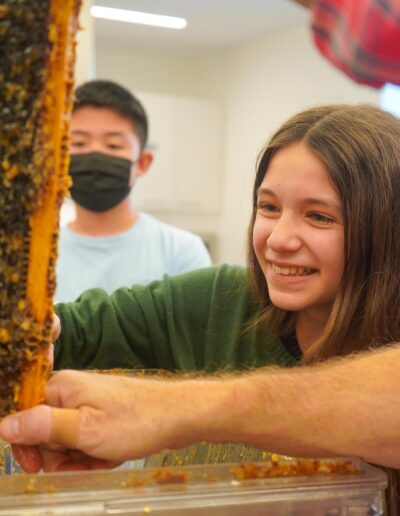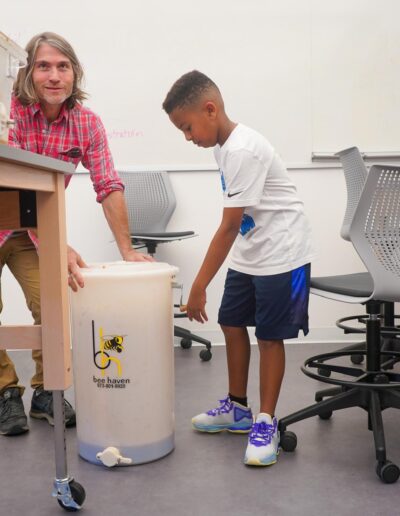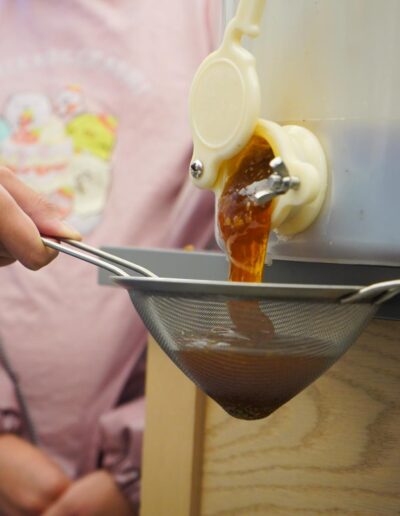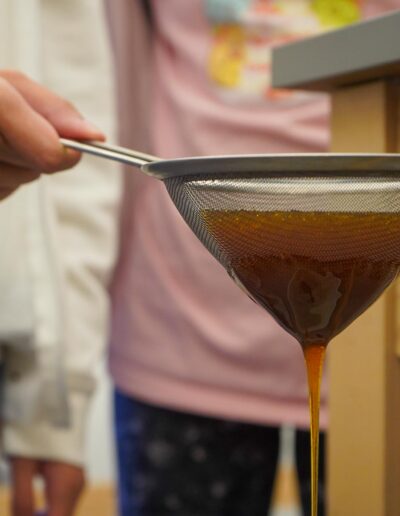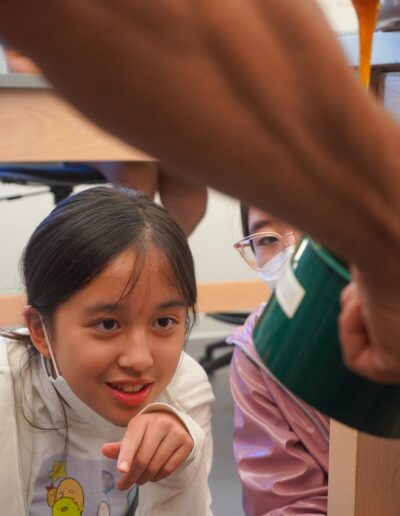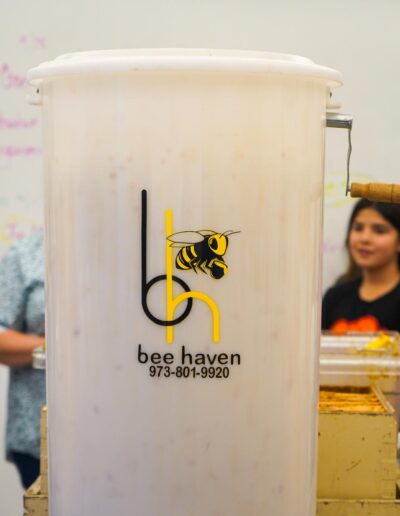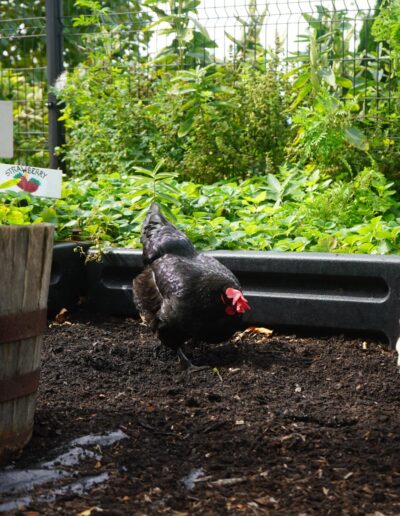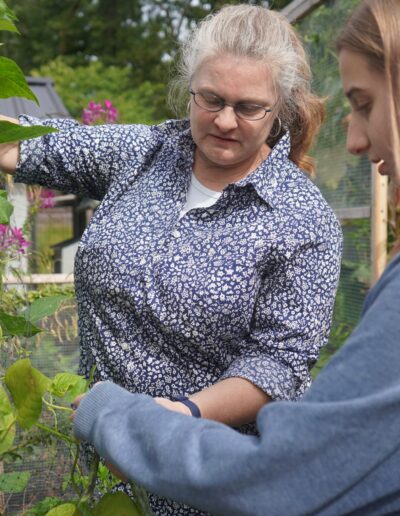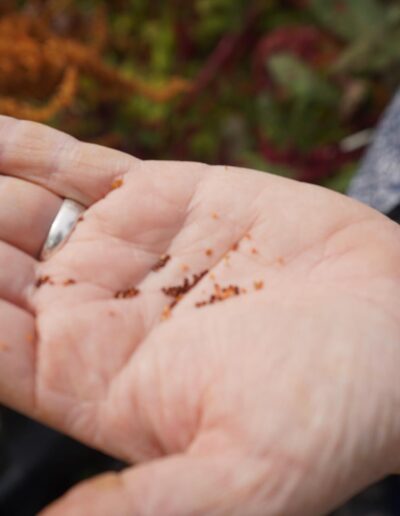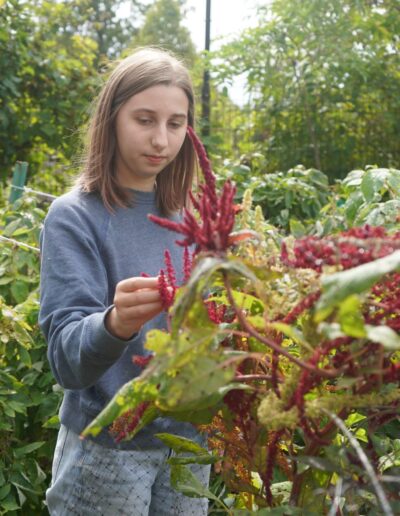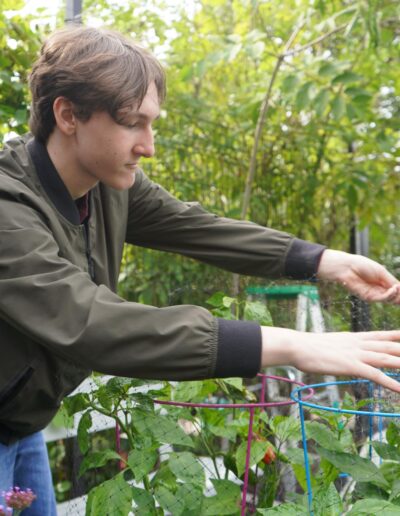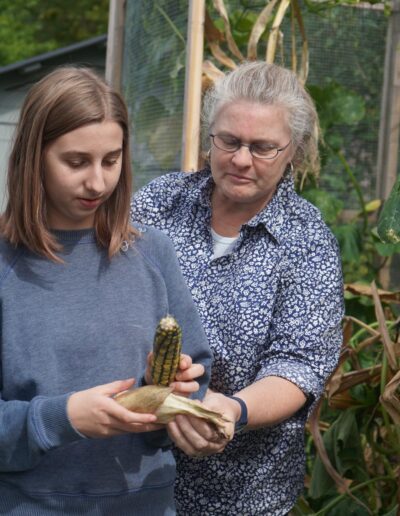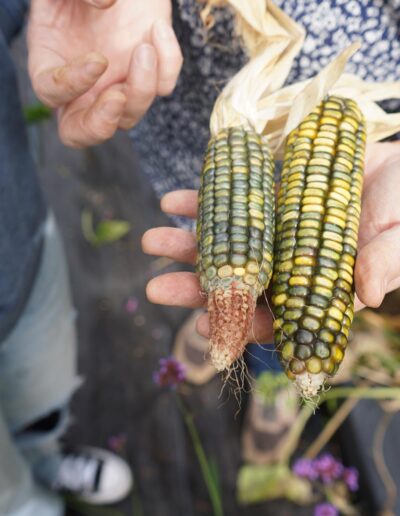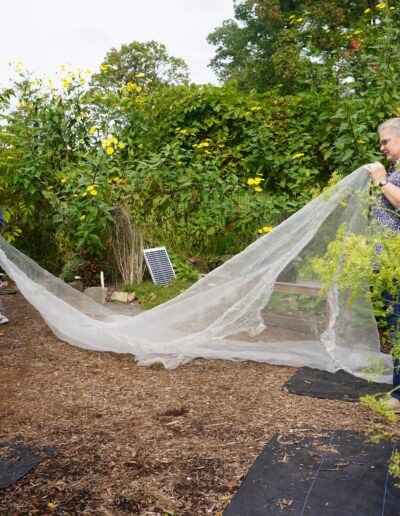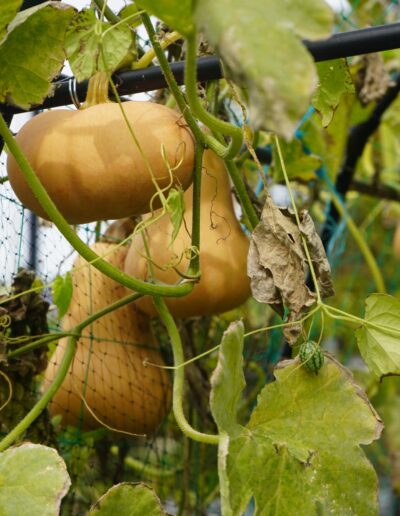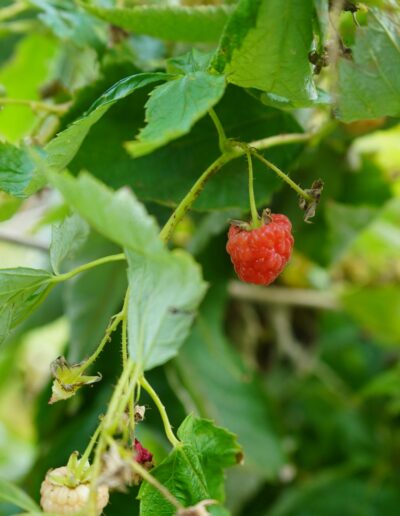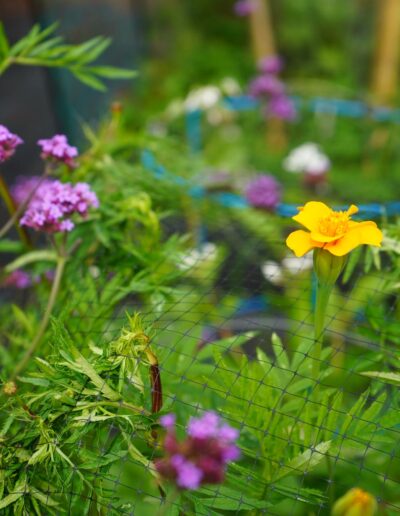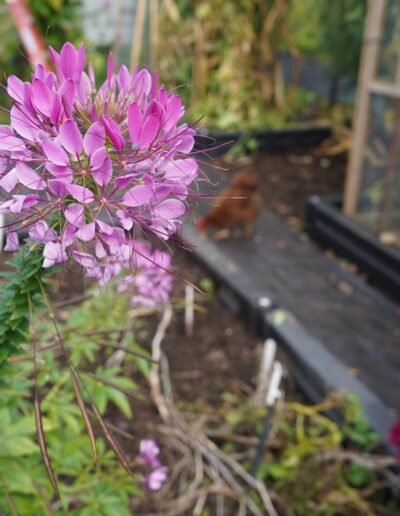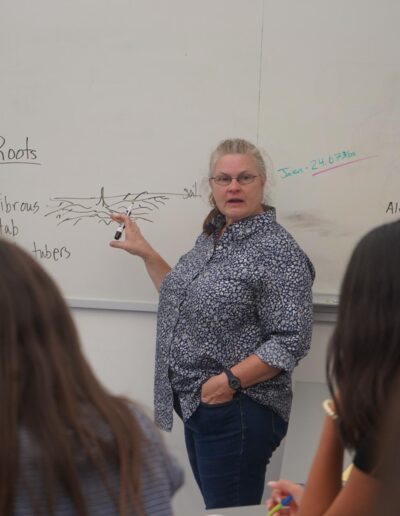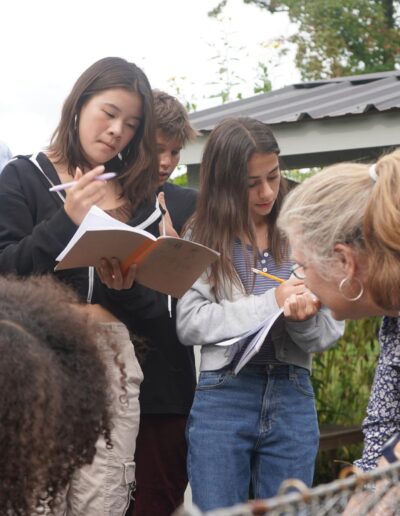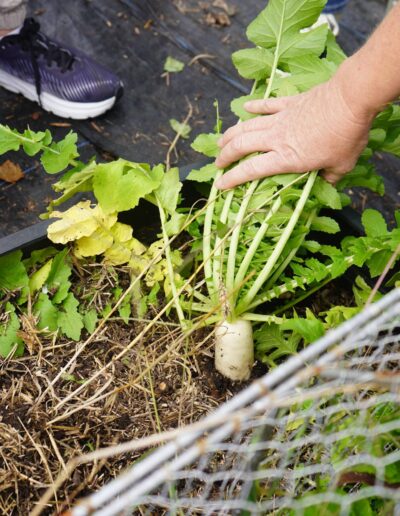Strengthening Research
& Innovation Skills in Outdoor Classrooms!
Strengthening Research
& Innovation Skills in Outdoor Classrooms!
Beyond academic courses and Robotics and other STEM-oriented co-curricular activities, which typically take place indoors, opportunities for students to strengthen their role to support sustainability can often be found outdoors as well. Through these endeavors, students are also encouraged to build their confidence in research and innovation skills.
D-E’s campus currently houses the Nettie-Louise Coit D ‘37 Garden, a robust compost arena, a chicken coop, and a thriving apiary for bees – the single-source home of the School’s very own, D-Elicious “Happy Bees Honey.” *See Editor’s Note! With help from continuing efforts of students, faculty and staff, and parents alike to bring the classroom outdoors, the collective green thumb of D-E has only gotten greener, and like the growing seasons, that process has taken patience and a lot of T.L.C.
The inception of having gardens at D-E began with several service learning projects in the sixth grade about gardening and the D.I.G. (“D-E in the Garden’) Discovery Class elective. Tasha Urbanowski vividly recalls sixth grader at the time, Oliver Oz ’17, simply asking how they could do gardening more often. Soon after, the Discovery Program in the Middle School was born, which included D.I.G. (D-E in the Garden).
“The garden at D-E is space for place-based learning, …it’s a place to learn about conservation that’s regionalised. It became the place that kicked off the environmental club in the Middle School and a place where students take initiative and leave legacy projects.” – Tasha Urbanowski
With the current Nettie-Louise Coit D ‘37 Garden, Middle School students at the time initially imagined a a high production crop garden. However, when it came to surveying faculty about how they’d use the garden, they adjusted their expectations to the needs of the community; a teaching garden would suffice.
And a teaching garden it became! With each annual fall harvest come plenty of opportunities for hands-on learning and exploration. Hannah Caroll ’25, one of the three Upper School Garden Club Presidents noted how, “in my ninth grade history class we compared the agricultural revolution to hunter-gatherer societies. We tasted how different food was before the potato and other crops. They tasted really good!”
The garden hosts a wide range of plants and crops, including sunchokes, potatoes, purple amaranth, and cultivated wheat––all of which are important to studying Early World History in ninth grade. Feeling the small bits of amaranth grain between your fingers and comparing that to huge stalks of wheat in the adjacent garden bed puts history into perspective. Mx. Ambler, ninth grade history teacher, explains how, “there is not a lot of historical record from that period, not a lot of artifacts. I think one of the wonderful things about D-E is that they’re willing to devote resources to have something like a teaching garden. Tasha will partner with you to propose specific things to grow to be ready for you when you want to use them. It’s wonderful to have something that is visual, tactile, and experiential. It’s like a couture lesson.”
Lessons like these are the fruits of consistent time and effort. Over the years, students’ efforts have inevitably looked different. For the beloved chicken coop to be installed in the current garden, students learned that it was illegal to house chickens in the city of Englewood. In the span of three years, students researched local law, found the ordinance, presented their proposals to the Englewood Board of Health, and then applied for the first license to have chickens in the city–––a feat beyond what was initially imaginable! Now, D-E’s flock of chickens are the in-house pest managers and soil turners.
More than a dream, gardening at D-E is a material practice: a collective ritual that serves to inspire students and realize a deeper relationship to the world around them.
If anything, D-E’s garden is about building relationships with our climate, plants, animals, and each other. A new sense of ecological literacy and curiosity germinates. Leonard Glozman ’25, co-President of the Garden Club appreciates that, “what the garden has done for me is expose me to this world of organic farming. We’re not a farm, yet we all grow all these things and with a surplus to donate. It teaches you about diversity too. In the supermarket, you’ll just find russet potatoes, but being here, we have so many colors and varieties. And it’s a better practice for food security. Hopefully, it brings awareness to diversity in food and encourages people to eat in variety.”

